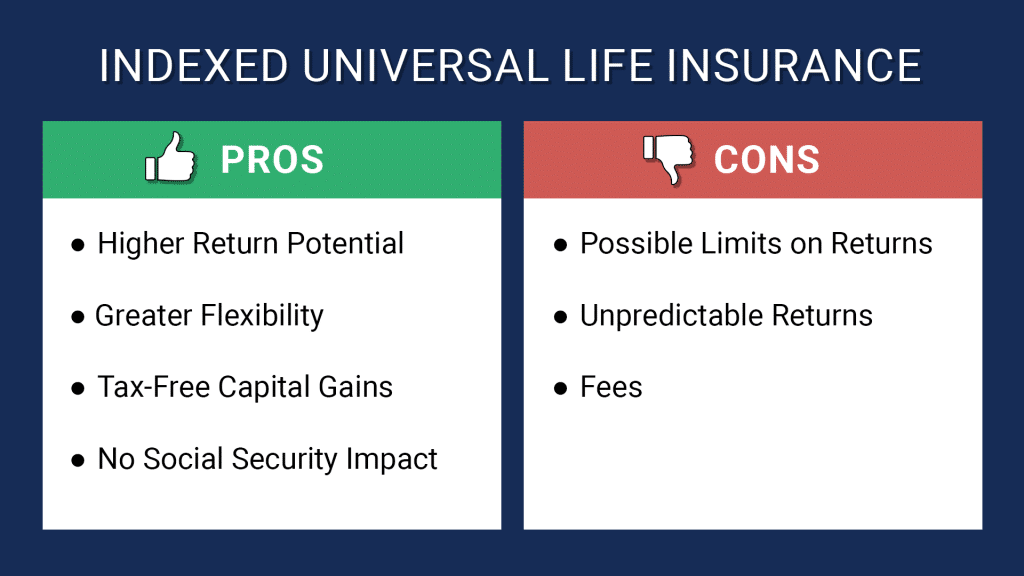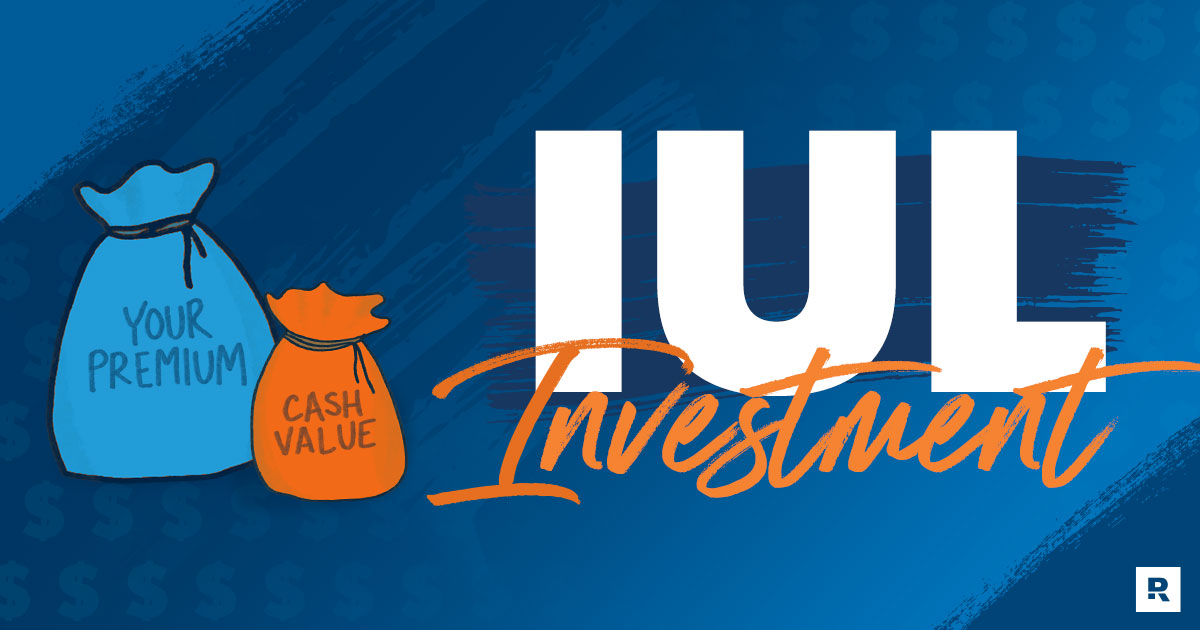All Categories
Featured
Table of Contents
Indexed Universal Life (IUL) insurance is a kind of long-term life insurance policy plan that integrates the features of standard global life insurance with the capacity for cash worth growth linked to the performance of a stock exchange index, such as the S&P 500 (IUL premium options). Like other kinds of long-term life insurance coverage, IUL offers a death benefit that pays to the recipients when the insured passes away
Money worth buildup: A section of the premium settlements goes into a cash worth account, which gains rate of interest with time. This cash money value can be accessed or borrowed versus throughout the policyholder's lifetime. Indexing alternative: IUL plans offer the chance for money worth development based upon the efficiency of a securities market index.
Who offers flexible Iul Policy plans?
Similar to all life insurance products, there is additionally a set of threats that insurance policy holders ought to recognize prior to considering this sort of plan: Market risk: One of the key dangers connected with IUL is market risk. Since the cash money worth growth is connected to the efficiency of a supply market index, if the index does poorly, the cash money value might not grow as expected.

Enough liquidity: Insurance holders need to have a stable economic situation and be comfortable with the superior settlement demands of the IUL policy. IUL permits flexible premium repayments within particular limits, but it's important to preserve the plan to guarantee it attains its intended goals. Interest in life insurance policy protection: Individuals that require life insurance policy protection and a rate of interest in cash money value development might locate IUL attractive.
Candidates for IUL need to have the ability to recognize the technicians of the policy. IUL might not be the most effective alternative for people with a high tolerance for market risk, those that focus on low-cost financial investments, or those with more immediate economic demands. Consulting with a qualified economic expert that can give customized advice is important before thinking about an IUL policy.
All registrants will certainly obtain a calendar invitation and link to sign up with the webinar through Zoom. Can't make it live? Register anyhow and we'll send you a recording of the presentation the next day.
What are the benefits of Iul Investment?
You can underpay or miss premiums, plus you may be able to change your death advantage.
Flexible premiums, and a death advantage that may additionally be adaptable. Money worth, together with potential growth of that value via an equity index account. Long-term Indexed Universal Life benefits. An option to designate component of the cash worth to a fixed rate of interest option. Minimum rates of interest assurances ("floorings"), yet there might also be a cap on gains, normally around 8%-12%. Gathered cash value can be used to reduced or possibly cover costs without subtracting from your fatality advantage.
Insurance policy holders can choose the percent allocated to the dealt with and indexed accounts. The worth of the selected index is recorded at the start of the month and compared with the value at the end of the month. If the index boosts throughout the month, interest is included in the cash value.
The 6% is increased by the money worth. The resulting passion is included in the money worth. Some policies calculate the index gets as the amount of the changes for the period, while other plans take an average of the everyday gains for a month. No rate of interest is credited to the cash account if the index goes down rather than up.
Is there a budget-friendly Indexed Universal Life Loan Options option?
The rate is set by the insurance provider and can be anywhere from 25% to even more than 100%. (The insurance firm can additionally change the get involved price over the life time of the plan.) If the gain is 6%, the engagement price is 50%, and the existing money value total is $10,000, $300 is added to the money value (6% x 50% x $10,000 = $300).
There are a variety of pros and disadvantages to think about prior to buying an IUL policy.: Similar to standard universal life insurance coverage, the policyholder can boost their premiums or lower them in times of hardship.: Amounts credited to the money value grow tax-deferred. The cash value can pay the insurance premiums, allowing the policyholder to reduce or stop making out-of-pocket premium payments.
What are the benefits of Flexible Premium Iul?
Lots of IUL policies have a later maturity day than other kinds of universal life plans, with some ending when the insured reaches age 121 or even more. If the insured is still alive during that time, plans pay out the fatality advantage (but not normally the money value) and the proceeds may be taxable.

: Smaller plan stated value don't supply much benefit over normal UL insurance policy policies.: If the index goes down, no interest is attributed to the cash money value. (Some plans offer a reduced guaranteed price over a longer duration.) Various other investment automobiles use market indexes as a benchmark for efficiency.
With IUL, the goal is to make money from higher motions in the index.: Due to the fact that the insurance policy firm only purchases options in an index, you're not straight invested in stocks, so you do not profit when business pay returns to shareholders.: Insurers fee fees for handling your money, which can drain cash money value.
What is the best Iul For Wealth Building option?

For most individuals, no, IUL isn't far better than a 401(k) - Indexed Universal Life protection plan in regards to saving for retirement. A lot of IULs are best for high-net-worth people seeking methods to minimize their gross income or those that have actually maxed out their other retirement choices. For everyone else, a 401(k) is a much better investment automobile due to the fact that it does not carry the high costs and costs of an IUL, plus there is no cap on the amount you might make (unlike with an IUL plan)
While you might not lose any kind of cash in the account if the index drops, you won't earn interest. If the marketplace transforms favorable, the earnings on your IUL will not be as high as a regular financial investment account. The high cost of premiums and costs makes IULs expensive and significantly less inexpensive than term life.
Indexed universal life (IUL) insurance provides cash worth plus a death advantage. The cash in the cash value account can make rate of interest via tracking an equity index, and with some commonly designated to a fixed-rate account. However, Indexed global life policies cap just how much cash you can build up (usually at much less than 100%) and they are based on a possibly unpredictable equity index.
What is a simple explanation of Indexed Universal Life Accumulation?
A 401(k) is a better alternative for that purpose due to the fact that it does not carry the high charges and costs of an IUL policy, plus there is no cap on the quantity you may make when spent. The majority of IUL plans are best for high-net-worth people looking for to decrease their taxed revenue. Investopedia does not supply tax obligation, financial investment, or monetary solutions and guidance.
If you're taking into consideration purchasing an indexed universal life policy, very first speak to an economic advisor who can explain the nuances and provide you a precise image of the real possibility of an IUL plan. Make sure you comprehend how the insurer will determine your rate of interest, revenues cap, and charges that could be evaluated.
Latest Posts
New York Life Variable Universal Life Accumulator
The Cash Value In An Indexed Life Insurance Policy
Guaranteed Universal Life Insurance Quotes